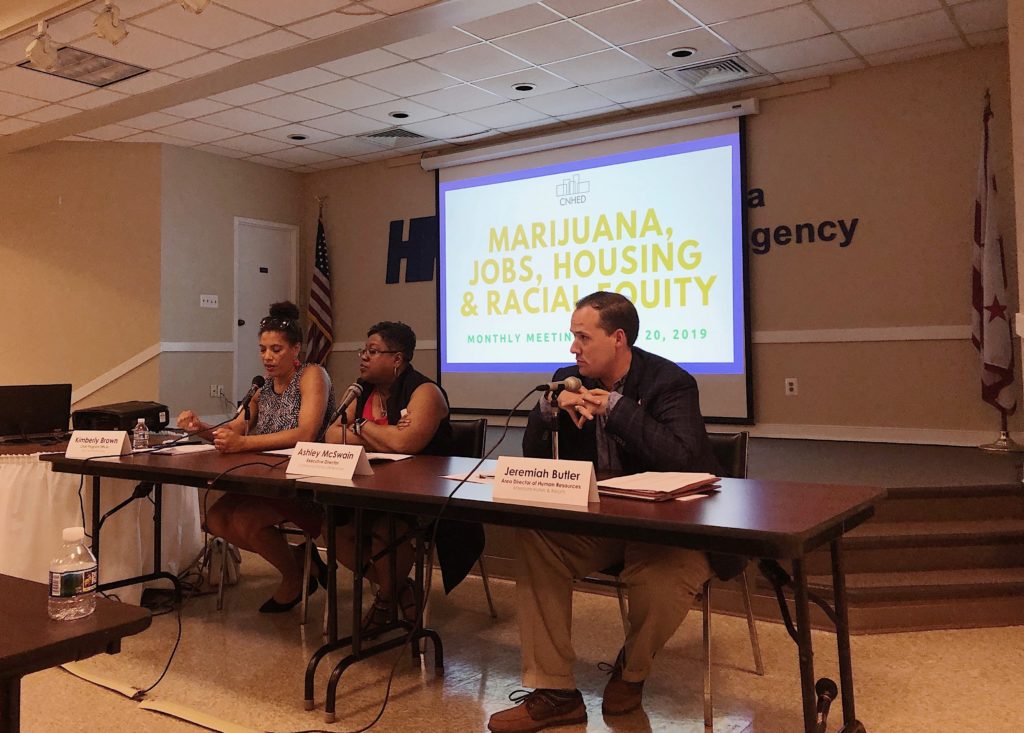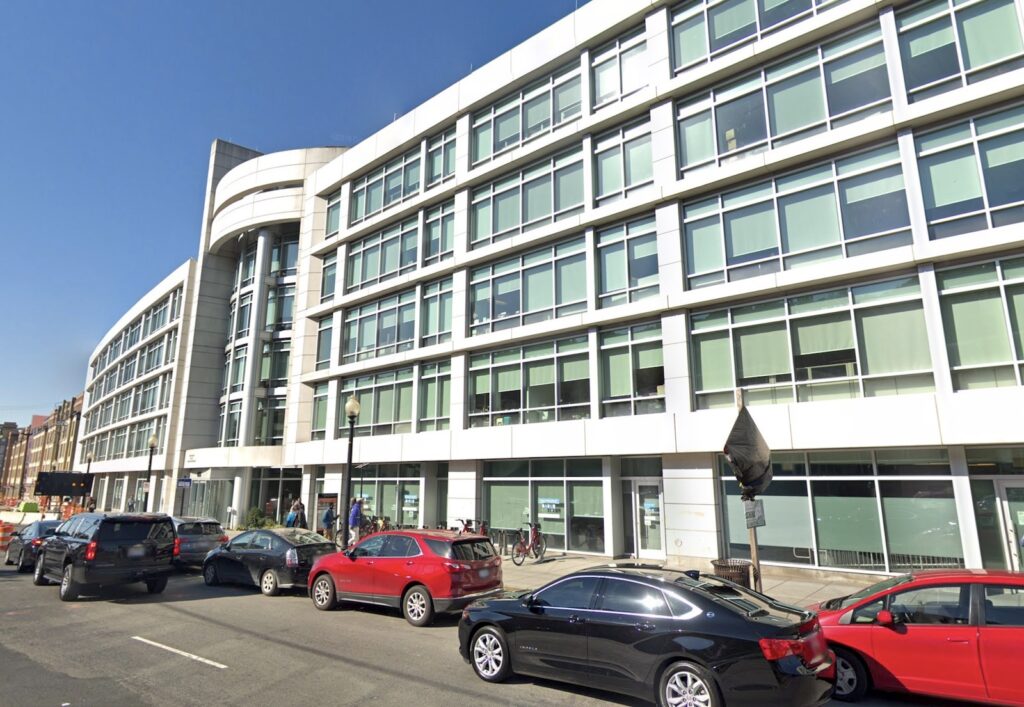Support for marijuana legalization is climbing in the United States, and D.C. is trying to keep up with the times.
While Congress has barred the District from regulating sales and taxation of the substance, marijuana use on private property has been legal in D.C. since Initiative 71 went into effect in February 2015. But its use is still illegal under federal law and city residents living in federally assisted housing and public housing cannot legally use marijuana on their property.
The Coalition for Nonprofit Housing and Economic Development used its monthly meeting to discuss these nuances and the challenges they pose for communities of color. There was consensus among attendees that the District’s legislation targets low-income residents and can have unanticipated consequences for employment.
Michael Perloff, who specializes in police misconduct and marijuana criminalization, spoke at the meeting as a representative of the D.C. branch of the American Civil Liberties Union (ACLU). According to Perloff, marijuana legislation is a particularly acute issue that exacerbates the racial injustice of mass incarceration.
As it is a relatively minor offense, officers have a lot of discretion in enforcement. It is also an offense that can be correlated with poverty due to the prohibition of use in public spaces, and there is a high correlation between race and poverty in the District. Though there is little racial difference in usage rates, 86 percent of people arrested on marijuana charges in D.C. last year were Black.
“This isn’t just the case of a large police presence in wards 7 and 8, resulting in a lot of arrests,” Perloff said. “This is a case of racial disparity [in enforcement] across the city.”
Perloff admonished MPD’s poor compliance in providing requested data. It took the ACLU one year to receive arrest data in response to a Freedom of Information Act request. To get data on the race of people stopped by MPD — which is required by law to be recorded — the ACLU would have to examine 31,000 body worn camera videos at an estimated cost of $3 million, according to Perloff.
Beyond issues with data transparency, there is also an information gap due to the inconsistency between federal and state policies, according to Tanya Duckett, the chief development officer for the cannabis consulting firm Caniventures.
“Whenever you’ve got to ask a question, there’s room for a lawyer to run all over you,” Duckett said.
Even when the law is clear, the consequences of using marijuana legally aren’t always understood.
The legalization of marijuana in D.C. has created a new obstacle for people who have been incarcerated, according to Ashley McSwain, the executive director of Community Family Life Services. McSwain works specifically with “women on the path to self-sufficiency.”
Unless specifically prohibited by a judicial officer, the use or possession marijuana is not a violation of probation in the District, but it remains at the employer’s discretion whether to screen for marijuana in the hiring process. Ninety percent of McSwain’s clients aren’t aware that the drug can still impact their employability, and marijuana can show up on a drug test weeks after the last use.
“Many clients believe that, because it’s legal, they can smoke it and it shouldn’t be affecting their employment opportunities,” McSwain said. “But it does.”
According to McSwain, marijuana screening can be used as a way for employers to discriminate against her clients. Some employers don’t honor medical marijuana cards. She isn’t sure where her organization should stand on the issue, but at a minimum, McSwain said Community Family Life Services should provide educational opportunities to make these consequences better understood.
“It’s like a setup. If you’re on probation, and you engage in something legal … it can be a new barrier that you hadn’t anticipated,” McSwain said.
One employer, Jeremiah Bush a human resources director for Interstate Hotels & Resorts, said he does not screen for drugs when hiring but that his choice is not commonplace in the hospitality industry. He said his company prohibits drugs and alcohol in the workplace but disqualifying potential employees for marijuana use outside of work is not in the company’s best interest.
“If it’s not directly affecting someone’s ability to do their job, then what is the issue for us?” Bush said.
He also noted that post-accident drug testing is a problem, as it could deter employees from reporting workplace accidents and receiving compensation benefits. The U.S. Department of Labor warns that this can be considered a form of retaliation against workers, but it still happens. McSwain shared an anecdote about a woman who dropped a tray while working at a bakery and the accident was blamed on her marijuana use.
Though the meeting’s attendees showed broad support for decriminalization, legalization is a nuanced issue. Some participants were concerned about second-hand health consequences, damage to housing units and the rigidity of insurance policies.
Congresswoman Eleanor Holmes Norton introduced the Marijuana in Federally Assisted Housing Parity Act of 2019 in April to reduce some of the inconsistency surrounding legalization. The bill would allow marijuana use in federally subsidized housing if it is otherwise legal in that state. However, this is the bill’s second introduction and the chances of it being enacted are slim.








